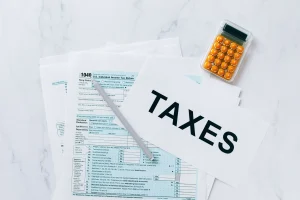
Tax breaks for private real-estate investors include not only the ability to maximise deductions and take advantage of incentive programmes but also strategies designed to lower taxes in pursuit of certain investment goals.
Other creative strategies such as market timing, deferring capital gains taxes and the use of installment sales considerably reduce taxable income, but require advice from an expert about the particular state and federal laws and regulations governing their use.
Property Taxes
Property taxes are a factor for property investors. If you want to be a passive investor, then you want as much income and capital gains as possible passed on to your tenants, in order to reduce your income and capital gains taxes – so you want a limited ownership classification attached to your interests in your investment property. If you want to be a hands-on landlord, then you can benefit by taxing your tenants maximally – so you want an unlimited ownership classification attached to your interests in your investment property. You need to keep good records of the expenses paid and amounts received for each investment property. There are important tax savings available to property investors, including the mortgage interest deductions and other expenses paid that can be deducted as business expenses. These expenses can be written off against taxes, providing a great incentive to own an investment property.
Local organisations set tax rates to cover such municipal services and fire and police protection as well as improvements and infrastructure for public schools. Property tax rates in various counties and states can be wildly dissimilar, and once a year (usually between October and May), you receive a property bill from your local authority, which is due by April or May of each year. If these bills are not settled promptly, steep penalties and fees apply; the cost basis for taxes is the purchase price plus transfer fees, appraisal expenses and inspection costs needed in order to acquire it; if you avail yourself of any tax breaks for improvements such as upgrading the heating/cooling system or installing a swimming pool, your basis is similarly reduced.
Capital Gains Tax
If you buy a property, hold it for a while, and then sell it for more than you paid for it, you’ll have to pay a capital gains tax on the difference but, if your property is held within a flow-through entity and you’re taking advantage of the tax breaks that come with buying and using like depreciation and zoning laws, the amount you’ll pay in taxes could be dramatically reduced or even none at all.
Selling your primary residence might entitle you to tax relief on up to $250,000 in profit; same if you are joint filers and get the best of both worlds, with profits from selling up to $500,000 being tax-free. Gain from an investment property is taxed at 0, 15 or 20 per cent, depending on income brackets.
Through a 1031 exchange, you can implement a strategy to evade capital gains tax. The requirements of an IRS Section 1031 exchange along with the several other regulatory hurdles shouldn’t be underestimated.
Mortgage Interest Deduction
Renting or leasing residential and commercial property on Craigslist might not be for the faint at heart, but owners who seek out this opportunity can deduct mortgage interest payments, as long as it was used for investment and not as a personal residence, and keep well-documented records. You should always consult a loan officer and tax professional prior to filing for this deduction to ensure that you qualify and be sure that you have appropriate documentation should an audit occur.
Second, real estate ownership allows owners to utilise a unique tax benefit called depreciation, which immediately improves profitability by offsetting initial outlay through reducing cash-taxes. Real estate investors will be able to use depreciation to offset initial outlay while, at same time, reducing cash taxes.
Real estate is a great investment, but in order to realise the highest possible returns and minimise expensive mistakes, it is essential to work with an expert who knows how to maximise returns, while minimising costly mistakes. An experienced team will maximise your returns and minimise your costly mistakes.
Other Deductions
People who invest through an LLC and who think of themselves as being in the business of managing real estate are entitled to other deductions on their taxable income, like management fees, fixing up the property, and travel expenses to go to a seminar or conference dealing with real estate management. Mortgage interest on the investment property is also deductible.
Rental property owners can also use depreciation to reduce taxable income, by deducting the cost of buildings and equipment as they age: 27.5 years for residential rental properties, and 39 years for commercial real estate. Investors must acquire an engineer report to calculate the cost of property depreciation to file their tax returns.
Those who invest in qualified opportunity zones or conduct a 1031 exchange can defer capital gains, although you need to keep good accounting and consult a certified tax adviser to maximise the benefits.







